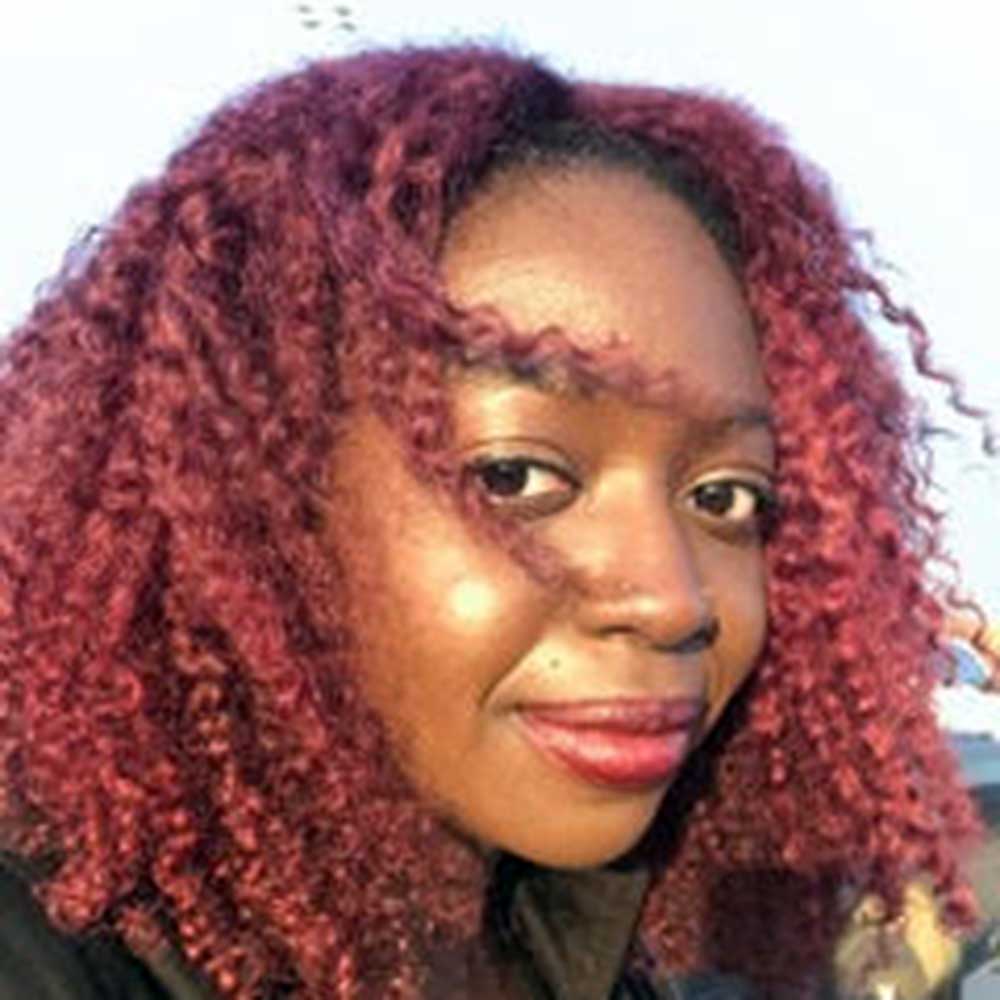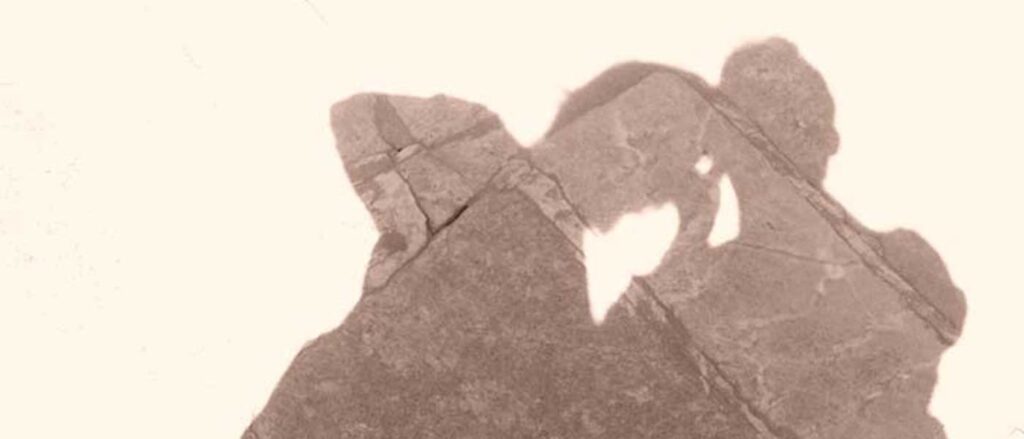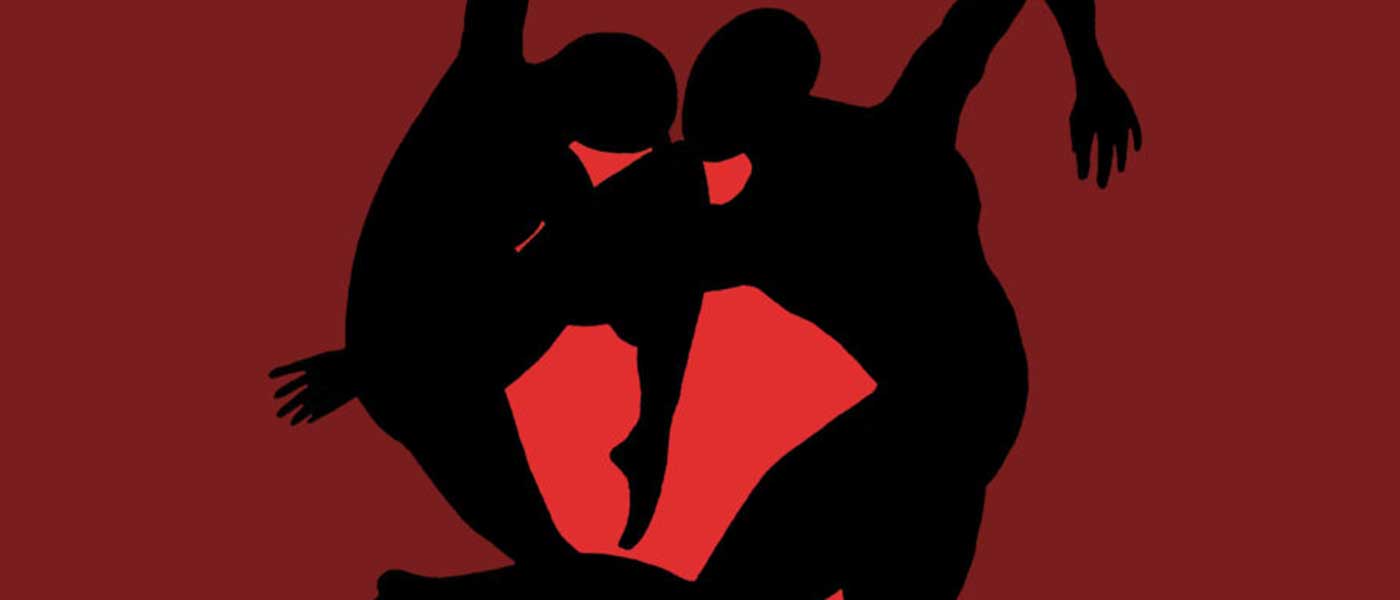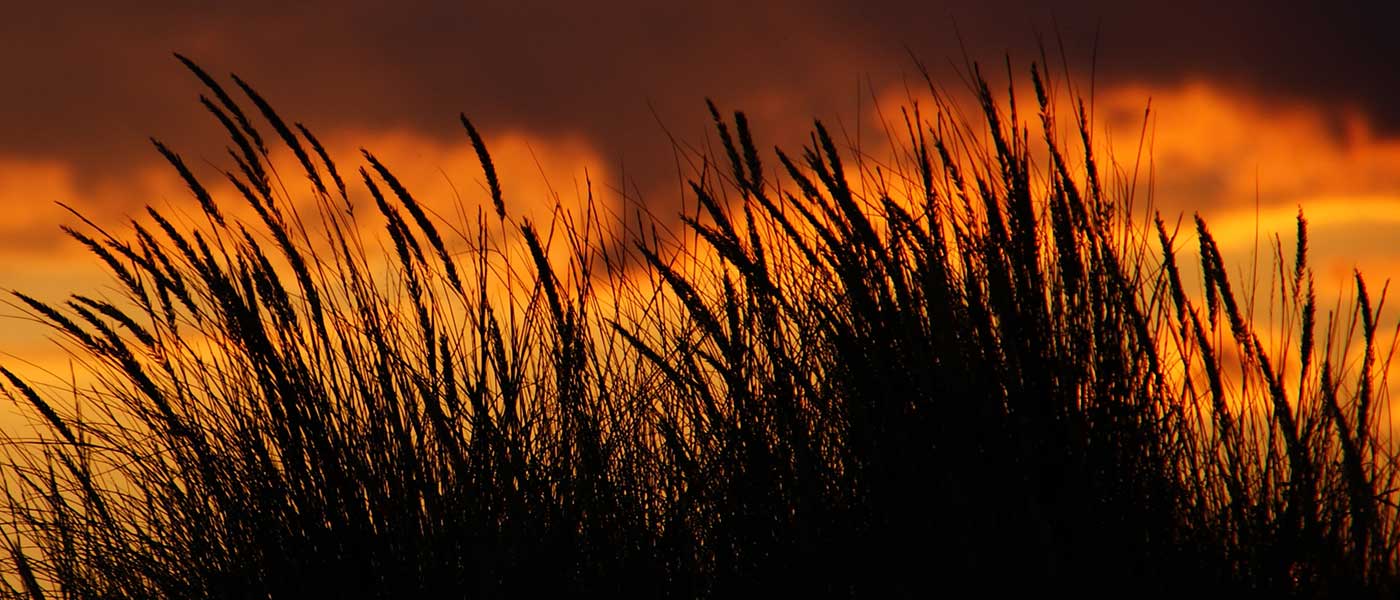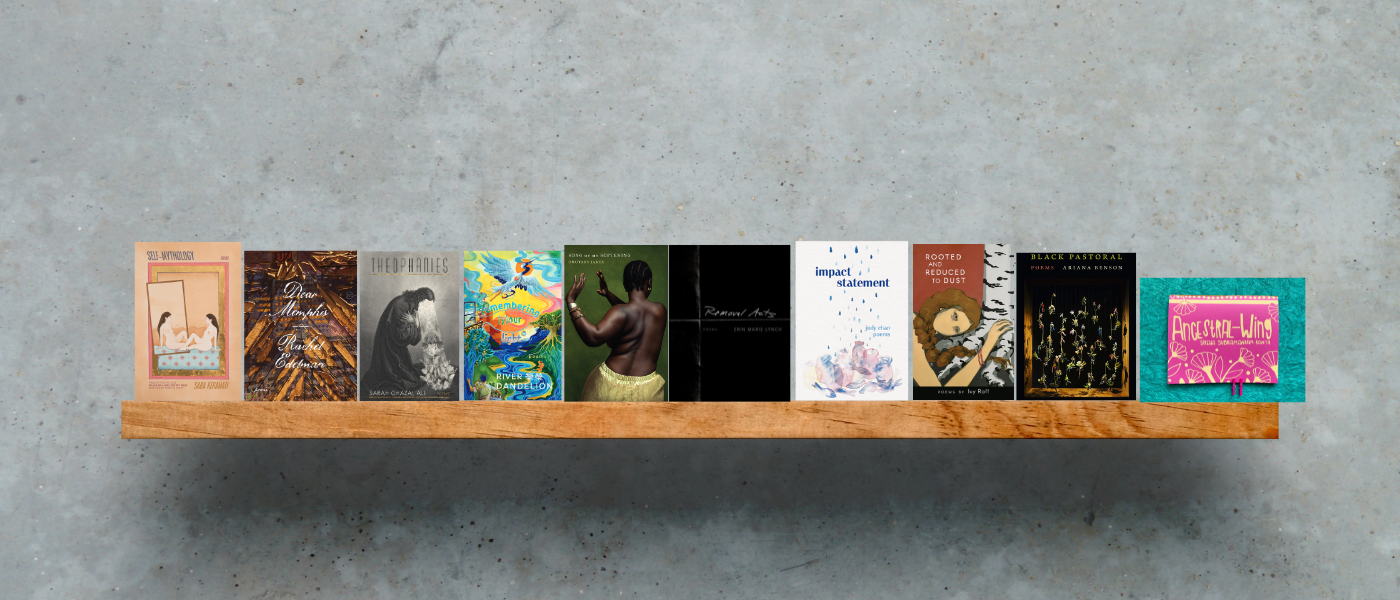1. after eve, who lived in the garden.
When we were girls, we weren’t supposed to look adults in the eyes, and when we did, we could barely stand the intensity, felt like we were too close to a human kind of flame. This is how we learned about desire: sitting cross-legged in silence with colorful books folded open in the space between our thighs, eyes cast downward, into the corners, onto glossy pages, wondering what it would be like to be able to withstand that kind of heat.
We were immigrant daughters, suburban American girls in the mid-late 90s, living in the overlap between these two blackout curtains. No cable TV until summertime, no playing outside after six on weekdays, no young, hip auntie or older brother to break anything real to us, so we saw nothing we weren’t supposed to see. You know our type — weird girls, cave people, the kind that come out during the day but seem far away, always at a distance. The ones you know but never really get to know.
Some nights, our mother sat cross-legged on the carpet between us and read stories from an illustrated Bible, a white-and-gold book with a broken spine, heavy and dictionary-thick, containing dozens of The Greatest Stories Ever Told. Our mother worked nights most weeks, and our father wouldn’t read to us on the floor (part of his effort to hermetically seal himself off from the effects of our household’s estrogen imbalance). And so, the nights our mother was home and the Bible was cracked open held a special kind of weight.
When we forgot where she’d left off the week before, we’d beg to return to our favorite stories — the one about the Creation and the one about the Fall. We’d marvel at the watercolor moon and stars meeting sea creatures and land animals as Adam and Eve look on from a nearby rock, struck by an awe that lasted only for a single page. Next came the Fall — depicted by a close-up rendering of Adam, tanned and hirsute, and Eve, bare-breasted, face alight with some kind of coyness, apple in hand.
We wished for so much between those pages — that she hadn’t touched the fruit, had never sought wisdom, because then we could have been there, in Eden. A garden free of winter and turtlenecks, bathing in the ever-loving, ever-lasting light of the Lord. We wished she hadn’t been stricken by a kind of wonder, even though if we stayed still and listened for it, we felt the same tingling in the space between right and wrong. It was a dark cavity, a shadowy between-space that we were too afraid to pursue, because our mother was the god that we knew to be afraid of.
Why wasn’t Eve afraid of God? We flipped back and forth, made our mother read each story again and again until she was spent, and in the dark afterwards, dreamed of the garden, imagined ourselves there.
2. after the cosbys and JET beauty of the week.
When we were girls, we avoided a certain kind of looking, the kind involving eyes beyond our own, lived out neatly contained desires in our imaginations and our dreams. When we looked, we looked mostly at each other. At our limbs — one set stocky, the other lithe — through our mother’s double-length bathroom mirror, when she wasn’t home. We looked at two brown bodies cloaked in corduroy overalls, sometimes turtlenecks, and our own eyes, but not very often. We understood ourselves as coiled, compressed things, like the springs in the pens our father let us take apart and put back together, understood that someday parts of us would expand into a kind of fullness, in time. That unlike Eve, we were willing to wait for what we were promised.
In the summers, we watched Nick at Nite, saw the Cosby family, and dreamed of older siblings, broken rules followed by a laugh track and freely given forgiveness. Vanessa taught us that life would require some yearning; from Theo we understood that the world would never revolve around us the way that it would have if we were boys; from elegant Claire, who stood firm, regal, but always ended up secondary in one way or another to Cliff, the center, we learned that part of life as a woman was to become, not just for ourselves, but for some imminent other. We watched intently as Cliff grilled suitors for his daughters and wondered what kind of guy our other would be.
In the summertime, we watched the cherry blossom tree in our front yard sprout waxy green leaves, and felt ourselves growing up and into the bodies we’d had since birth, limbs stretching upwards, towards the light. We ran and swam and read and learned, as girls learn, to become bodies to be looked at. Or maybe it was the act of being looked at — by skinny-calved boys doing wheelies on trick bikes, by freshly-licensed seniors circling the Target parking lot, and by grown men, out of the corners of eyes we couldn’t meet — that turned our sun-warmed skin into hey, dark chocolate, into irresistible flesh.
There was no way to know what to believe about this new betweenness — no way to understand the truth of a body with nascent breasts deemed too small for a first bra and too big for running full-speed in gym class. There was no way to know how to feel about long brown legs, too smooth to shave, when dancing Venus ads played between every segment of Oprah and Dr. Phil, five afternoons a week. Or about full lips, forbidden from real lipstick, rebelliously doused with two layers of extra-sticky MAC gloss, passed from girl to girl under metal-bottomed desks.
In the mosquito-laced Junetime, we tried to catch up, to find out what we were missing from what felt like the entire world. We read and annotated back issues of American Girl and old copies of JET and Ebony with glitter gel pens while sipping lemon juice mixed with Splenda from wine glasses embellished with pink paper umbrellas. Between humidity-crinkled pages, we found portals towards fuller, future selves, towards a glossy kind of post-girlhood that we wanted so desperately to believe in. We discovered that corduroy was wack, realized that jeans were in, read about white girls and their first white crushes, and traced the divinely-nipped waistlines of each JET Beauty of the Week.
What would it take, to be Beauty of the Week one day? Before bed, we imagined what it might be like to become an Organizational Behavior major at Spelman or study Fashion Design at NYU, plotted ways to coax our mother into letting us wear two-piece suits to swim lessons, sat perfectly still in the hairdresser’s chair in the hopes that our kinky hair could be transfigured into the long, relaxed tresses of Sasha from Tallahassee, sat stiller still under hot dryers, wondering how much searing heat and singed scalp we could endure to attain the soft curls of Nicole from Anaheim — curls that would flop, and fall, and frame a face.
At night, we returned to the Cosbys, looked towards their light while we felt our way down the dark, mysterious shaft of our becoming. We loved them all, but wanted only to become Denise, lithe and light-skinned, which we would never become, who radiated a kind of archetypal cool that we wanted to try on, forever. From her, on the screen, we learned how to look for and locate desire, how to trace the eyes of a man on the body of a woman, began to believe in the power of beauty, of becoming a thing to be beheld.
3. after beyonce, kelly, michelle, and the girls on the yard.
The summer after I was eleven-going-on-twelve, my sister, then eight-going-on-nine, stayed behind on the playground while I entered middle school without her, both ready and not-quite-ready to brave the new world of secular school alone. We began to assume separate selves, to slowly emerge into lives that existed outside of the regime of our parents’ home. Her body became her body and my body became mine, like conjoined twins finally freed from one another, but still just as bound to the other’s fate.
Even from our new, separate daytime domains, we mirrored each other from afar, compared notes at night back home. We ditched our beloved chapter books behind cubbies and on park benches, and learned from the girls on the yard at school that there was a way to be a woman even as a girl; a way to tuck your white collared polo tight enough to create premonitions — of a waist, bigger breasts, an ass preceded by a dip in the lower back. There was a reason to argue forcefully in the backs of discount department stores over bleached denim shorts with ragged hems, some advantage to be gained from ripping at the intact knees of our jeans with dull knives and pretending we’d tripped on the wood chips on the playground. There was a way to wrap limp hair at night so in the morning the ends looked bumped, a way to pretend you had some secret to hide around a boy. We learned what we couldn’t erase or create — our darkness, and the stubborn West African DNA coding, the overproduction of melanin that kept our ancestors safe from the sun for millennia. We learned this in school — the importance of dark skin, in Africa, way back when humans were just beginning. But we were in America now.
Our bodies began to stack up, and girl groups gave us a new standard to measure ourselves against — collectively, we could all harmonize in the back seat to “Bills, Bills, Bills,” but there could only be one Beyoncé, one Kelly, one Michelle. We began to judge ourselves against them and against each other, even though we didn’t wear makeup, or crop tops, only got braids in the summertime.
At home, as the eldest, I could be whomever I liked, but at school, I was always Kelly, even though she was long and lean and I’d never been anything close, because she’s the darkest one. The brown-skinned friend was always Michelle, and the lightest one won Beyoncé. And then I couldn’t help but see Beyoncés everywhere — in every class yearbook, in every love interest in every black movie, in reruns featuring our beloved Denise. Games like this — who is the most beautiful? — began to feel repetitive, predictable, and fade the magic I always imagined in beauty, like finding out that diamonds are easily manufactured and aren’t at all in rare supply.
But it didn’t make the end goal of beauty — being seen — less desirable. I faced the twin pain of knowing that I wanted to be beautiful, and knowing that beauty was out of my hands. I was becoming a body in a way that hurt, and I was reminded by everyone — by the boys who ignored my handwritten letters, by Harry’s Cho Chang, with her fair skin and long, straight dark hair, by the aunties who didn’t mind pointing out that you keep putting on weight and you’ll see — that I was ascending into a kind of womanhood, but not the beautiful sort.
4. after our mother.
Our mother is a Fante woman from a village near Cape Coast that overlooks the Gulf of Guinea, where she grew up eating roasted fish with tiny bones and never learned to swim. Most seafood makes my throat seize up, I swim with ease, and am several shades darker and many inches wider and taller than my mother. Back when I was a girl, I looked at my body and wondered where her genetic imprint began and ended. But men have told me that my skin is soft, and my mother’s arms are the softest skin I will ever touch. Near our father’s wine cabinet, there are 8×10 photos of my mother and I together in the hospital where I was born, crumpled and peachy and red-cheeked for the first and only time, perched chest to bare chest, and so I know I am hers.
My sister favors our mother, in disposition and appearance, in ways that I learned to envy very quietly. Our mother is unequivocally the tiny one, petite with JET Beauty curves, perfectly placed. My sister is taller, with a slightly fuller, more athletic frame, but they are both kind-hearted and lean, sable-skinned, with brown-flecked eyes ringed ivory white. They split fresh crab legs and laughter when we are by the beach, share clothing sometimes, while I, the daughter with undisciplined hips stacked on top of fleshy thighs, have always wondered in silence, over the non-catch of the day, what I could do to remodel myself.
Our mother grew up in a place where you did not have to be called beautiful to survive, to be seen. But I didn’t understand that then. I had only ever been my mother’s America-ni, my mother’s first-born daughter, would always only be hers. I could only see her through a composite lens — as the woman who’d married my father in a white lace dress, the woman brave enough to cross an ocean to come to America, forever the first woman I’d ever known, the woman my body once desperately hoped it would become. I was always looking towards other women, for other beauties out in the world, but hers was the kind of radiant, effortless beauty I could always touch, and feel, the only beauty that held me close.
And so when she told us, very plainly, that she’d known since she was young that she would never be very beautiful, I was devastated. My sister doesn’t remember any of this, but we were in our suburban garage, a place where (because I read too much and dreamed too deeply) I was always anxious about being extinguished by carbon monoxide. I knew that it would kill quickly and quietly, that one of us would have to have the mental fortitude to fight through the fog and that it would have to be me.
This was supposed to be a lesson. My mother wanted us to know that appearances were not the only thing, that there were other ways to become a woman. That all that mattered was finding our own pathways towards living well, and loving ourselves.
I knew she wanted us to believe what we already knew — that we could learn to behold each other, and ourselves — but I could only hear that she too had been appraised, judged, undervalued, provided with an external sense of self that she was told belonged to her. And she was smaller and lighter than I was, even when I was just twelve-going-on-thirteen, and if our mother wasn’t beautiful, then what were we? What was I?
an interlude to address the low-hanging cloud
It feels frivolous to meditate on this — on beauty, and the trouble it’s caused me.
But this is the rotten fruit women are asked to reclaim.
5. after the venuses.
When I am twelve-going-on-thirteen, I begin, alone, in a bathroom stall, to bleed. After school, my mother congratulates me, tells me I am finally a woman. The next year, my father moves our family computer into the living room, hooks it up to high-speed DSL, and I begin to spend nights alone, peering into the depths of the Internet, looking for new ways to feel beheld.
Men begin to call me goddess sometimes, but only online. In the daytime, I try to make eye contact with them for this reason only: to search this part of them out, to force it into the light. It never works. Or maybe it does, and I can’t see it. Learn not to trust it.
But I begin to believe in the goddesses, in ethereal, powerful women wrought from sea-foam, women worshipped at temples, women with criss-crossed, binary-defying stories, far beyond Eve and the first curse. I travel a thousand miles away from my mother and sister for college, and during the day, I take on a haphazard liberal arts curriculum, switching majors week after week, searching across literature and anthropology and history for new ways of knowing.
At night, I look deeper, past classical literature and myths, for histories that can hold me. I decide that I’m comfortably Venus of Willendorf — acorn breasts, a stomach that curves, thighs that meet at every possible point. It’s pleasing to know that 10,000 years ago, in a valley somewhere, I may have been adored enough to inspire carving. Online, I can easily meet the men who, at night, with their hands, in the dark, can remember the value of an original kind of softness. But in the light, I’m left alone to consider myself.
In a seminar called Black Women Theorize, I learn about Sarah Baartman, the Hottentot Venus, who was stolen from her homeland in South Africa, seen as half-spectacle, half-beauty — what Lorraine O’Grady calls the “two-in-one,” the unique split experience of black women trying to live in the space between “Jezebel and Mammy, prostitute and female eunuch.” I begin to theorize too, about my mother, and the vistas within this betweenness that she hoped we would be able to see.
After graduating into the world, I trade the campus library for city bookstores, and one afternoon, Morgan Parker’s There Are More Beautiful Things Than Beyoncé catches my eye. I find Sarah between us, in her poem “Hottentot Venus”:
They tell me I look regal bearing fruit.
I am technically nothing human.
I will never be a woman.
Somewhere in my
memory, I was held
by a man who said
I deserved it.
Now I understand.
I read, and begin to remember all the ways that language can behold the bodies that the world refuses to reflect. I think of all the black women across time and space working to behold me still, and of all the ways to be a Venus.
6. after bell and carrie mae.
There is power in looking, bell hooks promises — specifically in the way that black women look both towards and away from an always-male, often-white gaze that never considers them as primary subjects. She and other black feminist scholars call this way of looking the oppositional gaze, and I learn to see it everywhere, especially in the eyes of other black women — where it manifests as the side-eye, the heavy eye roll, the deep stare — to find it both beautiful, and beyond beauty, outside of language.
Under black, brown, and white photographs of herself looking from the bedroom into a mirror, photo performance artist Carrie Mae Weems writes unflinchingly:
Standing on shakey ground, I posed myself for critical study, but was
no longer certain of the questions to ask.
It was clear I was not Manet’s type.
So, she looked hard at herself, from behind her camera’s eye, and knew not from memory but from hope that there were other models by which to live.
I grow into my womanhood, and begin to wield this same power — to throw looks like daggers from the corners of my eyes, to give myself long, luxurious stares in bathroom mirrors, and hope that this is enough, to keep living.
7. after zora and billie and lorraine and lucille.
In my late-twenties, I move away from a black city, away from progressive bookstores and busy streets and brown spaces, to a white Midwestern college town where I discover, through booming bass filtering out from open car windows, all the white kids propping up rap album sales on the Billboard charts.
Before long, I begin to feel myself shifting back towards a place that feels more shadow than human, hyper-visible and invisible from one moment to the next. I take comfort in remembering Zora Neale Hurston’s words, captured and reprinted over and over on massive sheets in Glenn Ligon’s Untitled (Four Etchings): “I feel most colored when I am thrown against a sharp white background.”
I settle my portrait postcards of Zora and Billie Holiday and Lorraine Hansberry on my white windowsill, and beneath them I stack the books of poetry and essays and fiction that have guided me through a life I once thought I wouldn’t be able to live. I’m reminded, through Lucille Clifton’s much-beloved poem, “won’t you come celebrate with me,” that the life I’m living, no matter how invisible I feel or far removed I am from the communities and people I’ve called home, is always legible in the larger lineage of black womanhood, that I am just one of many echoes of our collective survival:
born in Babylon
both nonwhite and woman
what did I see to be
except myself?
i made it up
I decide that there isn’t a better time to start fresh, to make it up, and become all the versions of myself that I’ve ever wanted to live out — girl with dyed hair, girl with lime green nails, girl with a short skirt and breasts that look soft staring at your face while you pick up tampons for your wife. I refuse the shadows, let people stare at me, sometimes stare back, allow strangers to appraise me however they like, at their own risk.
8. after Lucille, again.
I’m learning to become myself, but some nights, I just feel lonely. Some nights, I take my dog on long moonlit walks, not because I am a good person, but because I am often stuck at 7,249 steps and there is no amount of putzing around Target or cleaning the kitchen that will get me to 10,000. And I am still a body in the world, still struggling with what I believe about beauty, still learning that I don’t have to reach 10,000 to be a good person. So I always start walking with the intention of becoming good.
On these walks, I try to look strangers in the eyes, the way I was once afraid of, the way I begin to believe that we should. Not to recognize beauty, but to offer grace. Not for my own pleasure, but the opportunity to behold another in the way that I’d like to be beheld.
9. after herself.
I’m a woman — not your goddess, not your Venus, not your Jezebel, not here for your pleasure, not here to bring you any joy.
I’m a woman — a black woman, a dark-skinned, full-fleshed black woman, living, in America, and it seems that this means I’m forever bound back to beauty, forever asking, must I be beautiful to be seen?
And so I’m offering up a new method for our appraisal, if we must be appraised at all. See my models, and hear my voice — I am asking not to be beheld by my flesh, but to be felt through my spirit.
Now watch, as I learn to arrange my own light.
